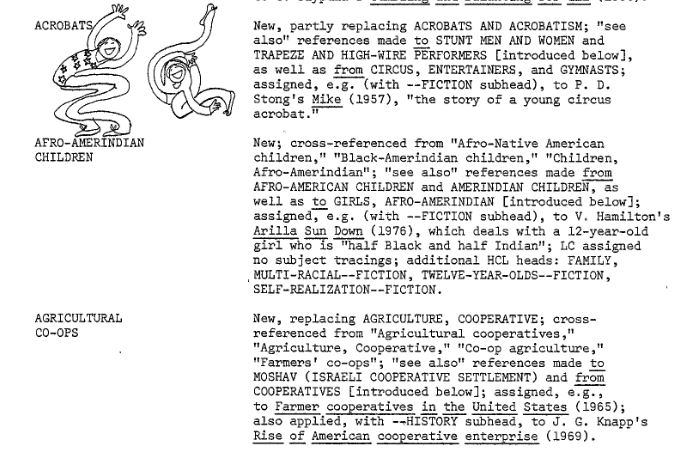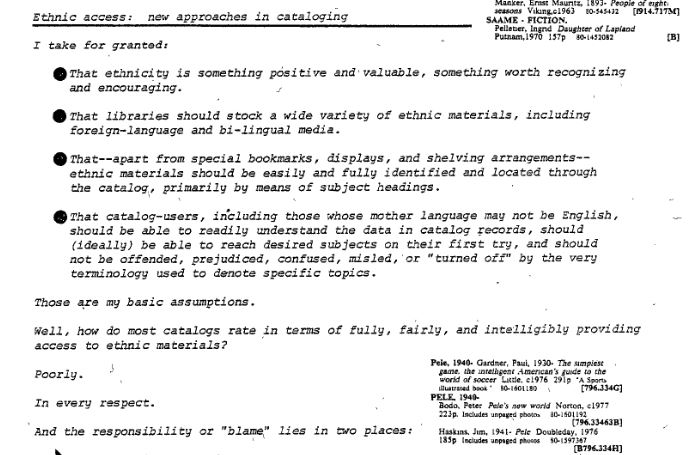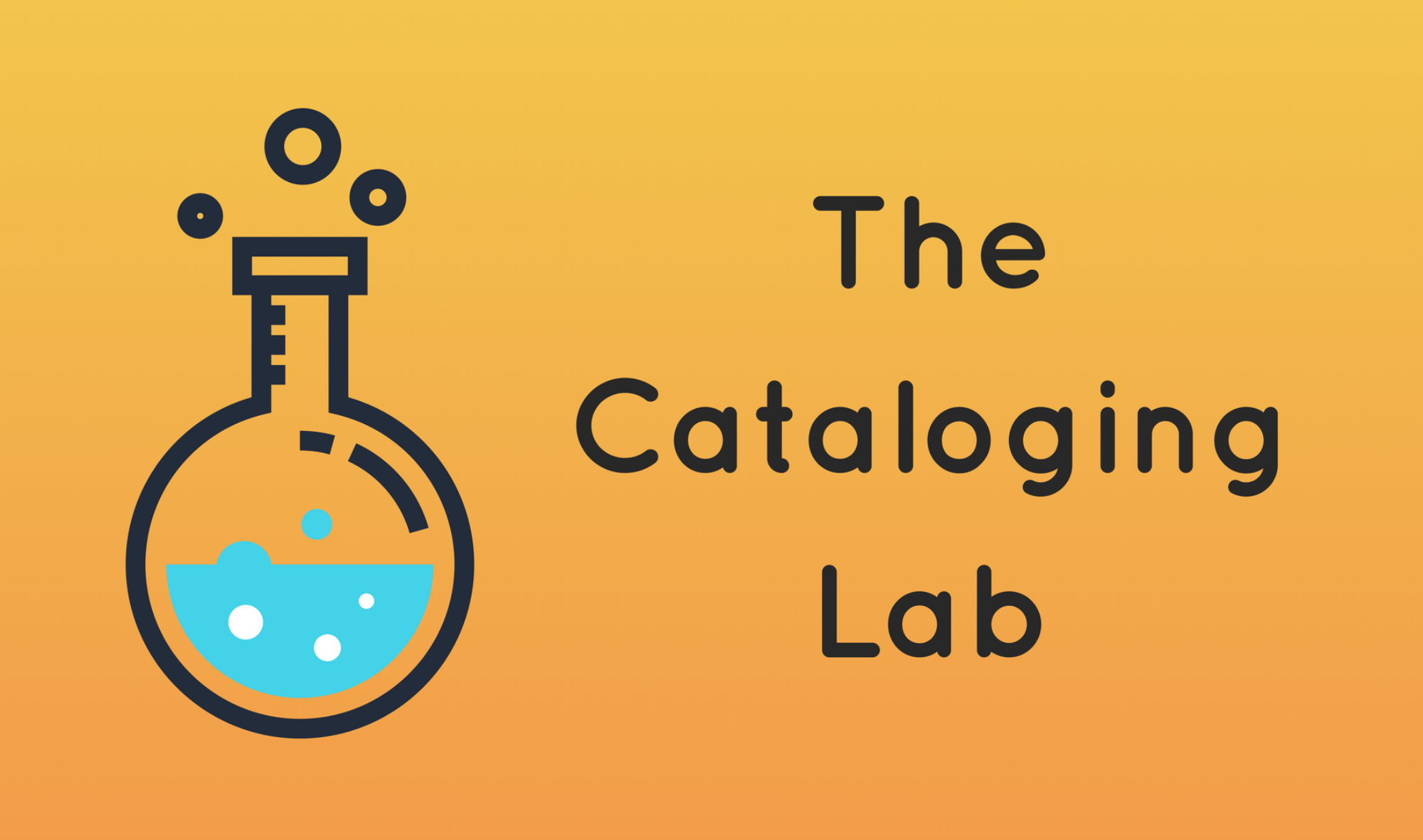Critcatenate is an effort to keep folks up to date on critcat efforts with a monthly-ish roundup of news. Critcat is short for critical cataloging, focusing on the ethical implications of library metadata, cataloging, and classification practice, standards, and infrastructure.
#critcat in June 2024:
- New online learning module: Uncovering Hidden Narratives from Georgia Tech. Read the news post and the story behind the project, spurred by the questions of first-year student Sam Bolton. The learning module was designed by ACRL Diversity Resident Alex Brinson with oversight from University Archivist Alex McGee. “The course is broken into three main sections: the traditional narrative around integration at Tech and the efforts of Black students before 1961; the process of discovering the Board of Regents records, including historical context and the lack of “inclusive description;” and how the Georgia Tech Library now describes such records to unveil the important stories contained within.” A quiz invites participants to make their own description decisions.
- New guidelines: Best Practices for Queer Metadata by the Queer Metadata Collective, which builds upon earlier work done by the Trans Metadata Collective (but doesn’t supersede that work). Topics include classification, subject headings, harmful content statements, name authority records, Wikidata, and much more.
- New call for volunteers: the LAIPA SACO Funnel is looking for a co-chair. The Latin American and Indigenous Peoples Funnel Project works to improve subject headings relating to Indigenous peoples. It’s an exciting time in the funnel as we look forward to working with the new LC Program Specialist (Sarah Kostelecky) who has been hired to focus on revisions to terminology relating to Indigenous peoples (in LCSH and beyond). Consider helping guide that work! Email current LAIPA chair Sara Levinson at saralev@email.unc.edu with questions or to express interest.
- New recommendation: Recommendations and Guidance for Creating an Inclusive Language in Library Metadata Statement by the University of California Systemwide ILS Ethical and Inclusive Metadata Practices in UC Library Search Project Team
- New blog post: “Yours In Utmost Disgust”: Desegregation Letters To The Governor Of Virginia by Karen King and Maria Shellman on the Library of Virginia blog, discussing the processing of racist letters from constituents reacting to the desegregation of Virginia’s public schools
- New blog post: Resource Refresh: Updates to Inclusive Description Resources in the SAA Description Section Documentation Portal by Ashley Gosselar, published on the Society of American Archivists blog, discussing the updates to their Inclusive Description resource list
- New article: Conscious Editing-Driven Metadata for Archives and Digital Collections: A Case Study by Ann Abney, Amanda Boczar, Sydney Jordan, published in The Journal of Academic Librarianship
- New article: Archival Meta-Metadata: Revision History and Positionality of Finding Aids by Owen C. King, published in Archival Science
- New (?) LibGuide: Guidelines for Reparative and Inclusive Description by Laurier University Archives and Special Collections staff
- New news story: New Resource Seeks to Link Spanish Speakers with LGBTQIA+ Library Materials by Freddy Monares at KNKX Public Radio (about the development of the Spanish language Homosaurus)
- New grant: $137,000 from the National Historical Publications & Records Commission will support the University of Georgia’s Finding Their Names project to digitize and enhance description and discovery of documents from approximately 80 collections related to enslavement in Georgia. The enhanced description will include a form of reparative description that will name enslaved individuals in item- and folder-level scope and content notes.
- New digital access: the HCL Cataloging Bulletins from the Hennepin County Library, published from 1973 to 1999 by the HCL cataloging team (including Sandy Berman), have now been digitized. Thank you to the MLIS students at St. Kate’s (Amy Gabbert-Montag, Jaylene Telford, and Charlotte Kadifa) who contributed this valuable digitization work! Issues includes additions to the HCL subject headings, Dewey classifications, and name authority records. An excellent resource for seeing examples of radical approaches to cataloging work in the 1970s, 1980s, and 1990s.

An example of the subject headings listings, from Cataloging Bulletin 27 (1977).

I’m doing a brief review of the new LCSH lists for headings that might be of interest to readers of Critcatenate. LCSH list numbers consist of a two-digit number for the year and a two-digit number for the month the headings were approved (for example, headings on list 2403 were approved in March 2024).
New LC headings of note on list 2403:
- new LCSH: Anti-caste movements
- new LCSH: Anti-Zionism
- revised LCSH: from Cerebral palsied to People with cerebral palsy
New headings of note on list 2404:
- new LCSH: Gender binary
- new LCSH: Misoprostol
- revised LCSH: from Rapanui (Easter Island people) to Rapa Nui (Easter Island people)
- new LCSH: Spirit houses (Religious facilities)
- new LCSH: Spirit houses (Shrines)
New headings of note on list 2404x:
- new LCDGT: Gazans
- new LCDGT: Zinesters
Please send congrats to me and the rest of the Medical Subject Funnel for all the headings on special list 2403a, revising Deaf to Deaf people and Hearing impaired to Hard of hearing people. List 2403x includes relevant changes to LCDGT. Very exciting!! Thanks to LC’s PTCP staff for the help in revising these headings.
In a real bummer of a decision, LC has announced that their monthly editorial meetings will no longer be open to the public. Instead, they will offer quarterly meetings that will discuss LCSH more broadly. This change reduces the amount of input library workers have on specific proposals, and reduces the opportunities library workers have to listen in and understand the decision making process behind LCSH decisions. LC editorial meetings have been open to anyone since August 2021. An open letter to LC about the editorial meetings decision was published in June 2024.
Upcoming:
- Friday July 12: Queering Metadata symposium hosted by the San José State University iSchool. Features a keynote by Bri M. Watson and a panel discussion by Chloe Misorski, Devon Murphy, and Adrian Williams
- Monday July 15–Wednesday July 17: IDEAL (Inclusion Diversity Equity Accessibilities in Libraries) Conference, hosted by the Association for Research Libraries. Critcat-related presentations include:
- Promoting Reflection on Authority Records Relating to Indigenous Peoples Data Management by Laura E Daniels and Violet Fox
- Whose Authority? Sustainable Organizational Change and Inclusive Descriptive Practices Management by Laura E Daniels and Jackie Magagnosc
- Metadata for Everyone: Identifying Cultural Issues in Publication Metadata poster by Julie Shi
- Wednesday July 17: Would You DIE for Your Catalogue? Diversity, Inclusion & Ethical Cataloging, held in Edinburgh by CILIP’s MDGS, the Metadata and Discovery Group in Scotland. Sessions include presentations on EDI-friendly subject headings for children’s literature at the University of Strathclyde, the introduction of inclusive terminology at the Moving Image Archive, through to the implementation of an Inclusive Collections Statement at the University of Leicester and an overview of the work of the SCURL EDI Network. There will also be a presentation on the Ethics of Cataloguing by Diane McAdie and a workshop by Jane Daniels and Diane McAdie.
- [editor’s note: I’m super confused by Diane McAdie presenting on DEI in cataloging when she wrote a newsletter post in January saying that DEI is a “leftist ideal that detract[s] from subject-based education, scientific research, intellectual debate, and free speech?” and is “indoctrinat[ing] our students”? Maybe there needs to be more vetting by our professional organizations of who’s profiting off this work.]
- Thursday August 8: Spanish Homosaurus Summit: Making Spanish Language LGBTQ+ Collections Accessible at UCLA
- 10-12: Workshop the Spanish Homosaurus: Work with grant partners to review terms from the initial draft of the Spanish Homosaurus. This event is open to all but designed for Spanish-speakers (of any level).
12-1: Lunch
1-2: Project Introduction and LGBTQ Collections Tour at the UCLA Chicano Studies Research Center
2-4: Community Co-Design Sessions: An opportunity for those interested in the accessibility of LGBTQ+ cultural heritage resources to identify challenges, opportunities, and engage in collaborative visioning. Sessions will be conducted in English and are open to all.
- 10-12: Workshop the Spanish Homosaurus: Work with grant partners to review terms from the initial draft of the Spanish Homosaurus. This event is open to all but designed for Spanish-speakers (of any level).
